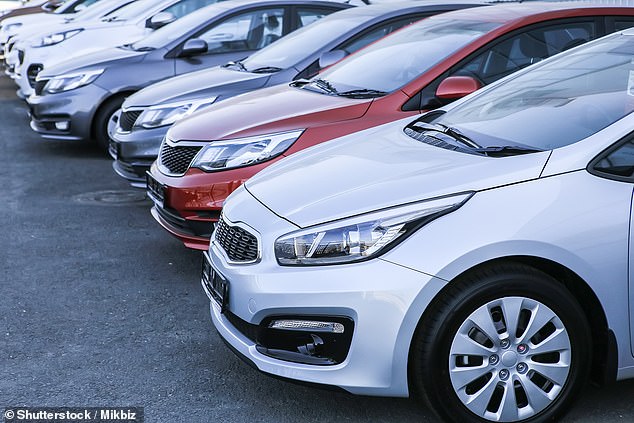Drivers are turning their backs on electric vehicles, as well as gasoline and diesel vehicles, amid the rising cost of new models.
According to figures from the Society of Motor Manufacturers and Traders (SMMT), 57,453 vehicles were sold to private buyers in May, 12.9 per cent less than in the same month last year.
And while the market for petrol and diesel cars continues to contract ahead of the ban, sales of all-electric vehicles to private buyers also fell by 2 per cent.
It came as Auto Trader figures showed just one in 25 new cars costs less than £20,000, down from one in six five years ago.
Auto Trader commercial director Ian Plummer said: “The new car market remains sluggish and retail demand has waned as a shortage of affordable new models means fewer options, even as fleet buyers prop up the market. market”.
Falling sales: SMMT figures show that only 57,453 new cars were sold to private buyers in May, a decrease of 12.9% compared to the same month last year.
‘Rising new car prices since 2019 mean even high-volume brands are suffering as the mid-market empties.
“High prices are pushing many more buyers into the used market, but they also leave the UK market vulnerable to more affordable competition, for example from Chinese electric vehicles.”
The price of new cars has risen as electric vehicles cost more to manufacture. And the trend toward more expensive models like SUVs has driven up prices, while inflation also contributed to the rise.
According to the SMMT, a total of 147,678 new cars were sold in May, 1.7 percent more than last year.
The increase was driven by orders from fleet and enterprise customers, which increased by 14 percent and 9.5 percent respectively.
That narrowly offset the 12.9 percent drop in private sales. A total of 9,220 diesel cars and 81,058 gasoline cars were purchased in May, a drop of 16.7 percent and 2.1 percent respectively, ahead of a ban in 2035.
Sales of all-battery electric cars rose 6.2 percent to 26,031, as a 10.7 percent rise in fleet volumes offset falling demand among private buyers. There was also an increase in demand for hybrid vehicles.
SMMT chief executive Mike Hawes said: “As Britain prepares for next month’s general election, the new car market continues to hold steady as large fleets maintain growth, offsetting weakening private retail demand.”
He added: “Consumers are enjoying a host of new electric models and some very attractive deals, but manufacturers cannot sustain this scale of support on their own indefinitely.”
“Its success so far should be a signal to the next government that a faster and fairer transition requires carrots, not just sticks.”

